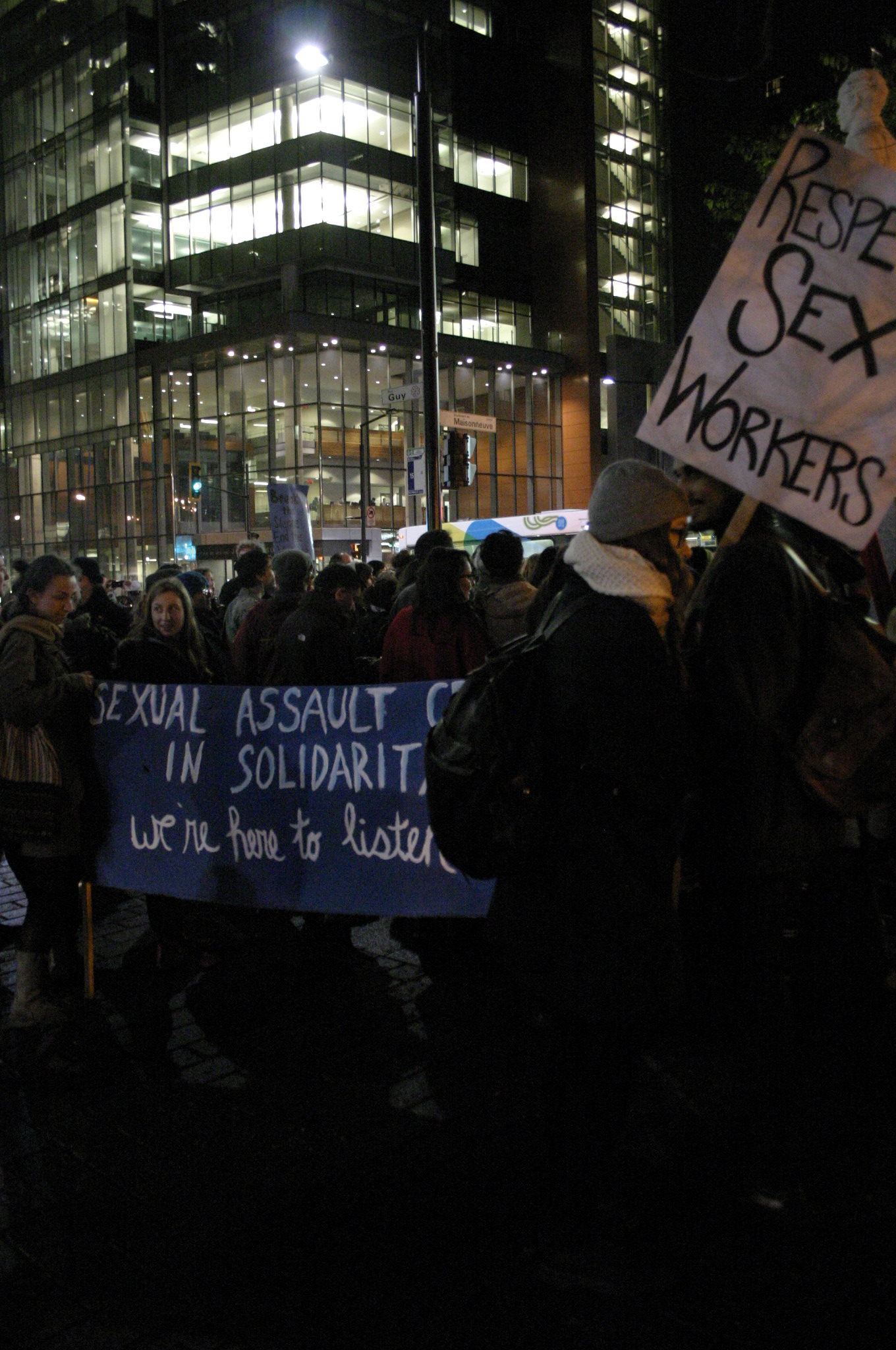Take Back the Night! is an annual tradition taking place in multiple major cities around the world. About 60 protesters gathered at Norman Bethune square last Friday to condemn gender violence, sexual assault and what organizers call the “rape culture” in which we live.
Organized this year by Concordia University’s 2110 Centre for Gender Advocacy, the Take Back the Night! event started with a succession of speeches and performances from various Montreal-based associations.
“We live in a culture where rape and sexual assault are normalized and expected,” said Julie Michaud, administrative co-ordinator at the 2110 Centre. Michaud explained that the notion of women attracting predators by wearing short skirts or revealing clothes when walking alone at night reinforces the idea that sexual assault is expected.
Associations touched upon a range of topics but the nature of the message stayed strong from one speaker to another. Québec Trans Health Action, a group for the rights of transgendered people, condemned the dynamic of fear and exclusion in which certain individuals, especially sex workers, are forced to live in. The Action des Femmes Handicapées described the violent nature of the “circle of dependence” in which physically disabled women live.
Finally, the pro-choice Reproductive Justice League performed a chorus enumerating the many ways a person can say “no” to sex, from “I’m tired” to “I’m not sure” to simple silence.
The march started around 7:45 p.m. and carried on for an hour through the main arteries of downtown Montreal.
“It’s something I’ll never understand as well as [women] do, but marching in an event like this one gives me a better understanding,” said protester Andrew Hogg. “The problems of sexual assault are usually hidden and are personal things that often people don’t talk about. I also don’t think most men talk enough about sexual assault.”
On the way back to Concordia a seemingly confused bystander exclaimed, “Is that really a protest against sexual assault?”
The bystander, Peter — who declined to give his last name — was on a cigarette break outside the restaurant he works at when he saw the march passing on De Maisonneuve Blvd.
“Everybody is against rape,” Peter told The Concordian. “I don’t see the point for a protest and blocking the street for something everyone agrees on.”
This type of argument is common in today’s society and translates a misunderstanding about the nature of sexual assault, according to Felix Chu, a volunteer at the 2110 Centre.
“The problem is people don’t know what sexual assault is,” said Chu. “We have such a pervasive rape culture where saying a verbal no is the only thing that [will make] people … take no for an answer. But there are some people that will coerce and emotionally blackmail, especially in university settings where there is so much date rape. People won’t call it rape. That’s what we’re trying to change.”
The 2110 Centre has been campaigning for a number of years to have Concordia follow the example of McGill and the University of Alberta and create a sexual assault centre in order to welcome and help victims of sexual assault, as well as educate students on what consent is.
